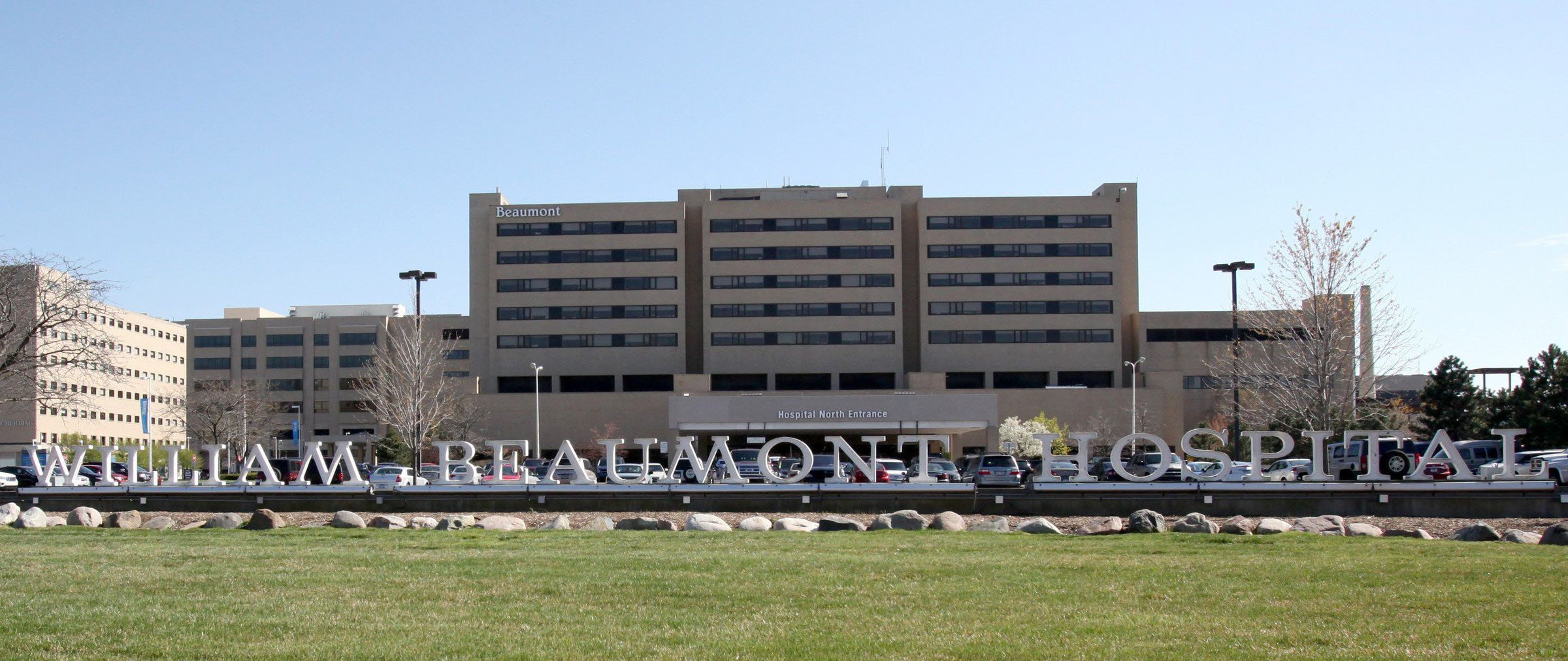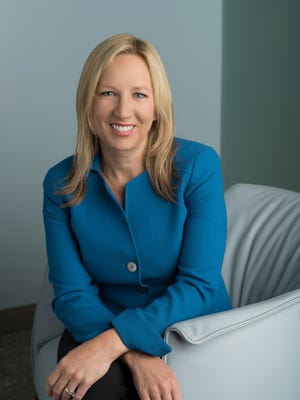
Beaumont Health and Grand Rapids-based Spectrum Health announced Monday that because federal regulators finished reviewing their planned megamerger and didn’t object to the tie-up, the new combined health system — the biggest in Michigan — will launch Tuesday.
The announcement suggests that the plan withstood the Biden administration’s heightened scrutiny of mergers and consolidations in the U.S. economy, including in the health care industry, which had the potential to scuttle the deal. That added scrutiny may have delayed the merger from happening late last year as initially planned.
Tina Freese Decker, president and CEO of Spectrum Health, will lead the new hospital system and current Beaumont Health CEO John Fox will depart Feb. 4.
“Today is a historic day — the launch of our new beginning,” Freese Decker said.
The new health system will have dual headquarters in Grand Rapids and Southfield and temporarily be called the BHSH System.
During a virtual news conference with reporters Monday, Freese Decker said Beaumont and Spectrum are moving forward with combining their health systems this week because they provided all requested information to federal and state regulators, and the Federal Trade Commission’s review period for the merger has expired.
She declined to say when the review period expired, citing confidentiality requirements in the FTC process.
“We have worked through all that process with the various dates that they have, and those dates have now expired, and so we’re confident about moving forward with our health system,” Freese Decker said.
An FTC spokesperson declined to comment or answer questions about the merger’s approval process. The FTC has ruled against hospital mergers in the recent past, challenging five such deals in 2020, Becker’s Hospital Review reported.
A representative for Michigan Attorney General Dana Nessel said the merger did not require state attorney general approval because under the structure of the deal, known as a “member substitution,” Beaumont and Spectrum remain separate legal entities overseen by the new BHSH System.
The two Goliaths in Michigan health care announced their intention to merge in June. The new, massive nonprofit health system will employ some 64,000 people and operate 22 hospitals spanning much of the Lower Peninsula.
The merger includes Priority Health, an insurance plan that currently enrolls 1.2 million people under the Spectrum Health umbrella and claims to be the fastest growing and second largest in Michigan.
Health system executives have said they don’t plan to close any hospitals as part of the merger.
During Monday’s media call, health system officials declined to disclose the financial terms of Beaumont’s departure agreement with Fox, the outgoing Beaumont CEO. Fox arrived at Beaumont for the top job in 2015.
“He does have a contract, and we will honor the terms of the contract,” said Julie Fream, the chair of Beaumont Health’s Board of Directors and who will lead the new system’s 16-member board. “The independent consulting service that we use to review contract terms has looked at it, and it is market-based, and we will be moving forward with that as he leaves the organization.”
Beaumont and Spectrum are not direct competitors based on their geographic markets, and only one health insurance plan will be involved in the creation of the entirely new nonprofit health system within Michigan.
However, the new system’s large size could give it stronger negotiating leverage with Blue Cross Blue Shield of Michigan and other health insurers, potentially leading to higher health care prices.
Southfield-based Beaumont brings to the merger eight hospitals and about 33,000 employees in southeastern Michigan. It has 3,375 hospital beds, 155 outpatient sites and a net revenue of $4.6 billion.

Grand Rapids-based Spectrum Health has 31,000 employees and 14 hospitals in western Michigan. It has 2,573 hospital beds, 150 outpatient sites and a net revenue of $8.3 billion.
“We are well positioned to transform health in our communities,” Freese Decker said. “We have learned so much from this pandemic, and the complementary strengths of Beaumont Health and Spectrum Health will propel us forward with innovation, creativity, humility and courage to make an impact for the people we serve.
“We are thrilled to unite our two great organizations for Michigan by Michigan to improve the health of all of our communities.”
For the time being, Freese Decker said, there are no plans to consolidate, limit services or lay off workers, and current union contracts will remain in place, too.
“Right now we are in a health care … worker shortage,” Freese Decker said. “And so we are doing everything we can to recruit and retain our talented team members here.”
Asked by reporters about the prospect of higher hospital prices as a result of the merger, Freese Decker said they aim to keep health care affordable.

“We also need to make sure we are competitive, and that’s how we look at our pricing,” she said, adding, “We are also very focused on transparency and ensuring that information is on our website.”
Fream was tapped to lead the new 16-member board, which will include seven people appointed by Beaumont Health, seven people appointed by Spectrum Health, Freese Decker and one other member to be named later this year.
Beaumont has a history of unsuccessful merger attempts. Its previous plans to merge with Henry Ford Health System (2012), Ohio-based Summa Health (2019) and the 28-hospital Advocate Aurora Health in Illinois and Wisconsin (2020) all were called off.
The Advocate Aurora deal was dissolved in October 2020 amid unrest among some Beaumont doctors and a no-confidence petition that demanded that Fox and Beaumont’s chief medical officer be removed from leadership.
Beaumont successfully merged with Oakwood Healthcare and Botsford Hospital in 2014.
